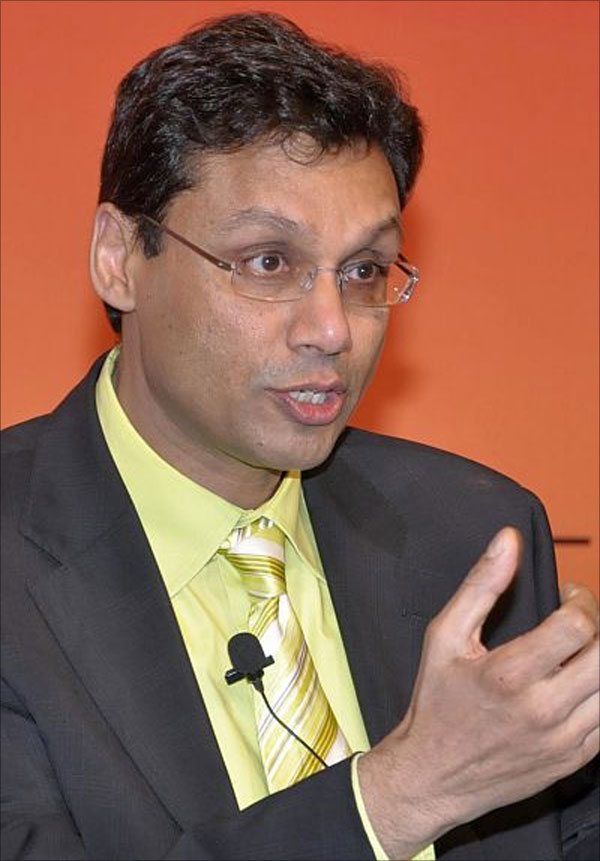
Back in India, Nirmalya Kumar says he has achieved the academic goals he had set and it is now time to learn new things.
It is a sunny summer afternoon in New Delhi, and the ground-floor poolside at the Taj Palace Hotel on Sardar Patel Marg is bright and airy.
Inside the restaurant that my guest has chosen things are much darker. There is hardly any natural light, the walls are made of some sort of stained glass, the overhead lamps gleam dully while the waitresses pad in and out with unobtrusive efficiency.
This sort of ambience works well late at night — not quite sure how it would feel during the day.
The thing is, Blue Ginger is a restaurant for people with serious interest in food — which makes me wonder why Nirmalya Kumar, who joined Tata Sons as a member of the Group Executive Council, reporting to Chairman Cyrus P Mistry, on August 1, has arranged for us to meet there. (He was professor of marketing and director of Aditya Birla India Centre at the London Business School before joining the Tata Group.)
Yes, it is a Tata group property, and, so, it could be a natural choice. But then nothing with what I have read about him during my research in the run-up to the Lunch with BS or with his whipcord appearance that suggests he has… well… serious interest in food, writes Alokananda Chakraborty.
“I love food and eat pretty much everything,” he announces when I suggest we order the food first and then get talking. “But you don’t look like a foodie, you know what I mean?” I couldn’t help saying.
The secret to staying fit, he says, are the 110 ab crunches he does every day. Plus he is particularly fond of walking. “In London I never had a car, you see,” he says with obvious pride. That explains it.
We decide to keep the food light and simple - it helps when you are trying to have a meaningful conversation. So, what will it be? A helpful waitress steps up and Kumar suggests she helps us decide.
After a brief discussion he settles for stir-fried prawns in tamarind sauce and some stir-fried greens; I stick to chicken red cari with okra. Vietnam has a robust tradition of vegetarianism but it isn’t much in evidence this afternoon. I ask for a fresh lime and soda to start with; Kumar an old-fashioned bottle of water.
...
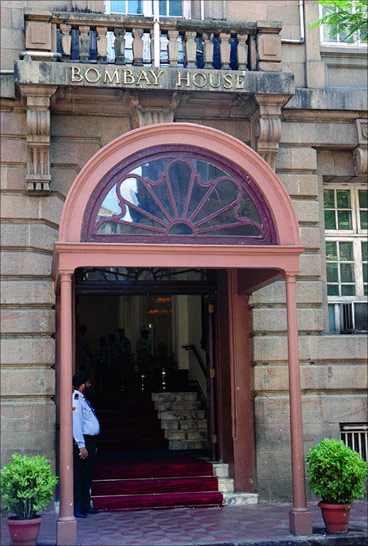
That settled, I decide to ask an easy question first: why did he want to come back to India? Kumar says he has more or less achieved the academic goals he has set for himself and so it is time for him to learn something new.
He has spent 30 years abroad and the Tata group’s offer seemed like the perfect opportunity to come back to his roots. “That said, I never truly left India — I would come back six to eight times a year,” he adds. That is to be expected — his mother lives in Kolkata, plus he had his consulting chores.
“So what is your mandate at the Tata group? What is the exact scope of your role?” I know the answer is going to be short and won’t reveal anything more than what I already know.
But still. “My mandate is to help the group chairman with strategic issues; I have no operational role,” he says. In addition, as the Tata group website says, Kumar will lend his expertise in bringing customer centricity to the fore across group companies. So, it is the perfect job. “What better way to come back than with a company that has played such a huge role in the development of the country!” Slightly convoluted, but point made.
Without doubt, Kumar’s earlier experience will see him through. He has worked with 50 Fortune 500 companies across 45 different countries; he has also served as an independent director on the boards of ACC, BP Ergo, Gujarat Ambuja and Zensar Technologies.
Indeed, very few management thinkers in the world come close when you consider Dr Nirmalya Kumar’s credentials. Winner of several teaching honours, he has taught at Columbia University, Harvard Business School, IMD (Switzerland) and Northwestern University (Kellogg School of Management).
...
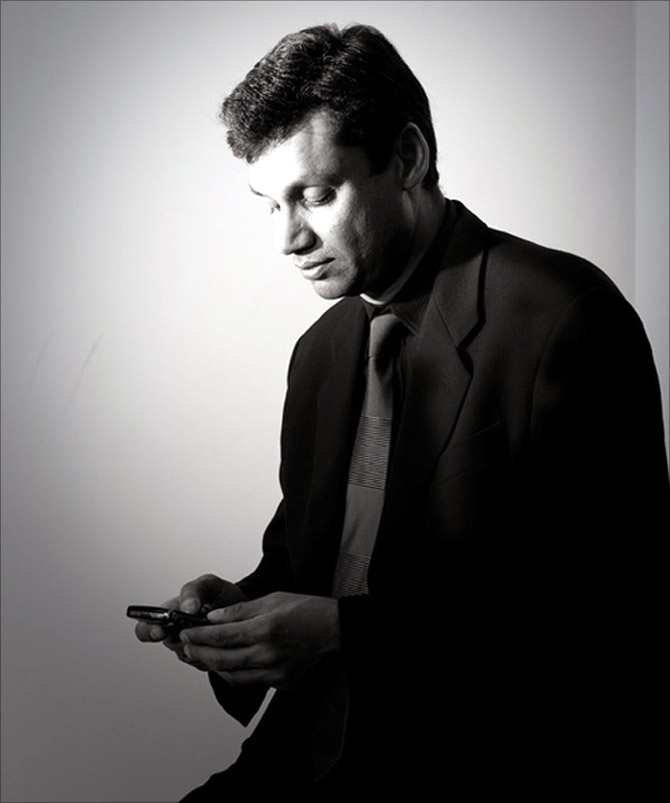
In 2010, Speaking.com voted Kumar among the top five marketing speakers worldwide; business daily The Economic Times placed him sixth on the list of Global Indian Thought Leaders; and The Economist referred to him as a “rising superstar” in its cover story “The New Masters of Management”. In 2011, the Thinkers50, which publishes what it calls the “definitive list of thinkers”, put him at No 26.
The food arrives: I am hugely impressed with the way the chef has turned around a commonplace prawn preparation. I dig into my dish, a country-style preparation with chicken pieces, okra and tomatoes. The dish landed with a slice of baguette — when you are in a Vietnamese restaurant you just can’t miss the French influence.
Talking to Kumar or looking at his curriculum vitae, it is difficult to believe as a student he was right at the bottom of the class (La Martiniere school, Kolkata). Atul Singh, deputy president, Pacific Group, The Coca-Cola Company, was in his class and among the top scorers.
Kumar’s defining moment came seven months before his Class XII examination. One of his teachers — John Mason, he still remembers the name — told him that if he tried hard he could “actually be good”. That statement transformed his life — Kumar went on to top the Class XII examination and never looked back.
He went on to complete his Bachelors in Commerce from Calcutta University, his MBA from the University of Illinois at Chicago with a perfect 5.0 grade point average, and his PhD in marketing from Kellogg Graduate School of Management (winning the Marketing Science Institute’s Alden G Clayton Award for his PhD dissertation).
...
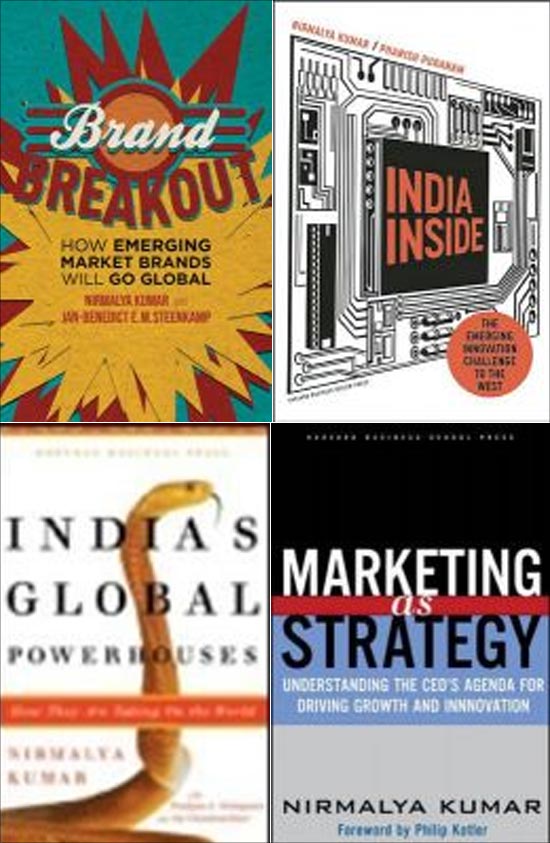
He starts talking of his newest book Brand Breakout, co-authored with long-time associate and friend Jan-Benedict E M Steenkamp, which was released just before he accepted the Tata offer.
He says his research shows that the spontaneous recall of the so-called emerging market brands outside their home countries is low and most emerging market companies are painfully aware of this. In fact, many leading companies from emerging markets feel that their country of origin’s image handicaps them and presents an obstacle when selling their products and services to western consumers.
Do Indian companies feel the same way? To flip the question around: Are global companies troubled by the economic and political uncertainties India presents?
There is a little bit of hesitation before Kumar says that he has just come back to the country and doesn’t know enough about the subject or, to be precise, not qualified enough to comment on things like economic and political uncertainties.
But of course, he says, there are things about India that are bound to attract global companies to this country. The biggest asset is its vast talent pool and the people’s proficiency with the English language.
What also fascinates him absolutely is the country’s rich culture and heritage — it’s completely unmatched, he says.
...
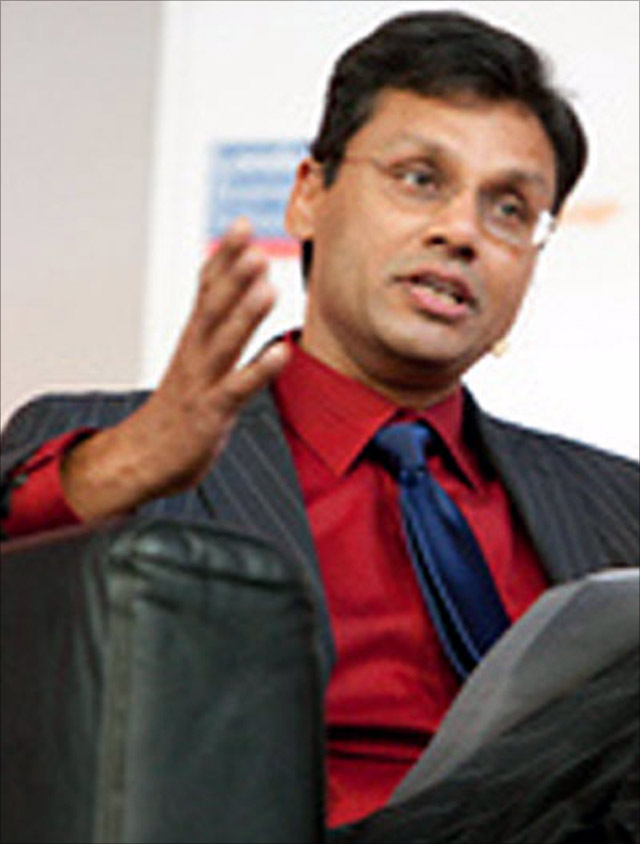
Then I bring up his favourite subject, Jamini Roy. Kumar is a passionate supporter of the arts, I have read. He is the custodian of among the largest known private collection of paintings by Jamini Roy and Rabindranath Tagore.
In recognition of his patronage and promotion of South Asian Art, the School of Oriental and African Studies of University of London awarded him an Honorary Fellowship in 2012. He says he doesn’t remember how it started but he simply “feels drawn” to Jamini’s work. “I go to an exhibition, I see a large number of paintings, but I buy Jamini. Maybe, it’s the simplicity of his work,” he says, adding, “I identify with his work at some level. I like to lead a simple life myself, I avoid ostentation of any kind.”
So what’s his new areas of interest? It’s the post-PC world, he says without batting an eyelid. “We all have this tremendous need to be connected with our friends, relatives, the people we love. Imagine buying a TV where while you watch your favourite programme, you can share it with your relatives sitting somewhere at the other end of the globe, and you have their images on the screen running on one side, and you can see their reaction, their laughter and all. Wouldn’t that be nice?” Kumar looks absolutely fascinated with the idea.
“Is that day far off?” I ask. “No, no, it’s already happening. The technology is available. It’s a matter to time…”
We are almost at the end of the lunch. Will I come across as kind of ostentatious if I order a dessert, I am thinking. Our friendly hostess pops up right then and says we can’t leave without tasting the dessert of the day.
What follows is the most divine coconut ice-cream. A few minutes later we get the bill and after some back-and-forth Kumar agrees to let BS pay. “If I knew you were paying I would eat more.”
It is his parting shot and I leave the restaurant counting in my head the number of ab crunches he would have to add to work all of that out.